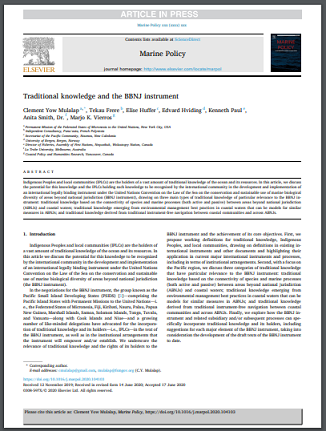
Indigenous Peoples and local communities (IPLCs) are the holders of a vast amount of traditional knowledge of the ocean and its resources. In this article, we discuss the potential for this knowledge and the IPLCs holding such knowledge to be recognized by the international community in the development and implementation of an international legally binding instrument under the United Nations Convention on the Law of the Sea on the conservation and sustainable use of marine biological diversity of areas beyond national jurisdiction (BBNJ instrument), drawing on three main types of traditional knowledge of particular relevance to the BBNJ instrument: traditional knowledge based on the connectivity of species and marine processes (both active and passive) between areas beyond national jurisdiction (ABNJs) and coastal waters; traditional knowledge emerging from environmental management best practices in coastal waters that can be models for similar measures in ABNJs; and traditional knowledge derived from traditional instrument-free navigation between coastal communities and across ABNJs.












